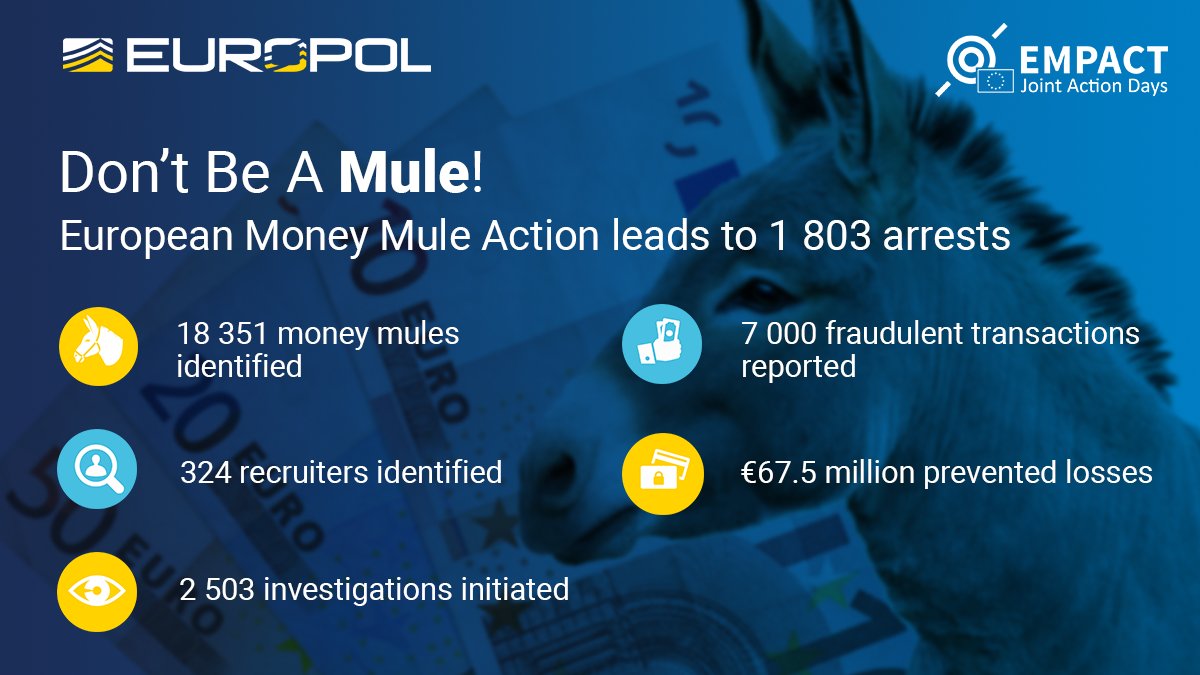KEEP IN TOUCH
Subscribe to our mailing list to get free tips on Data Protection and Cybersecurity updates weekly!







Europol has announced the arrest of 1,803 money mules out of 18,351 identified following an international money-laundering crackdown operation codenamed “EMMA 7.”
As its name suggests, this was the seventh EMMA (European Money Mule Action) operation, with the first taking place in 2016.
The operation relied on a large-scale collaboration of law enforcement agencies in 27 countries between September 15 and November 30, 2021.
The countries involved in this worldwide crackdown on money laundering are Australia, Austria, Belgium, Bulgaria, Colombia, Czech Republic, Estonia, Finland, Greece, Germany, Hong Kong, Hungary, Ireland, Italy, Moldova, Netherlands, Poland, Portugal, Romania, Singapore, Slovak Republic, Slovenia, Sweden, Switzerland, Spain, United Kingdom, United States.
Also Read: PDPA Breach Penalty Singapore: How Can Businesses Prevent
During these 2.5 months, 2,503 individual investigations led to collecting evidence and intelligence relevant to illicit online profiting and their sources.
In total, the operation prevented estimated losses of €67.5 million ($76.5 million) by stopping or reverting 7,000 fraudulent transactions across 400 financial institutes.
Most of the investigations carried out in the context of EMMA 7 focused on the international dimension of the money muling phenomenon and resulted in the identification of 324 recruiters.O

Money mules are people who receive and transfer money on behalf of scammers and fraudsters, helping them launder the stolen amounts in exchange for a small cut.
Also Read: Data Protection Authority GDPR: Everything You Need To Know
We have seen people signing up for this role out of desperation, and we have also covered cases of fraudsters forcing their victims to become money mules by threatening them.
Even though money mules aren’t taking part in the scams, they are still a vital link of the online crime chain, enabling actors to “clean” the money trace and enjoy the fruits of their malicious labor.
“The organized crime groups do this (recruit mules) by preying on groups such as students, immigrants, and those in economic distress, offering easy money through legitimate-looking job adverts and social media posts,” the Europol said.
“Ignorance is not an excuse when it comes to the law and money muling; they are breaking the law by laundering the illicit proceeds of crime.”
Be aware of jobs with suspicious signs like bloated income promises, no interview requirements, or the responsibilities focusing mainly on moving money around. In such cases, the chances of this being an offer from a money mule recruiter are high.